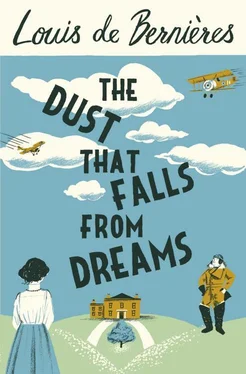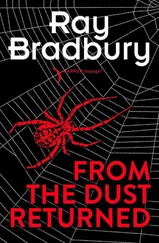‘No.’
‘It’s the Mahommedans. They think that they can’t get to Paradise if they’re missing a limb. If you have to do an amputation the grief and hysterics are quite dreadful to cope with.’
‘How very silly,’ said Rosie, ‘to think that God would care about a missing leg.’
‘They get over it,’ said Ottilie. ‘In the end they’re grateful to have a bit more life.’ She paused, and added, ‘And the Hindus think they can’t go to Heaven until they’ve had a son, so if they haven’t got one yet, they positively refuse to die, even when it’s absolutely inevitable. They die in a kind of spiritual agony. It’s dreadful.’
‘We’ve got ghats at Netley, for burning the Hindus. You know what the best thing is?’ said Rosie. ‘Do you know why I couldn’t give it up, no matter how awful it is? It’s the gratitude of the men. It makes me want to cry every time I think of it. When they leave they write messages in my scrapbook, and poems, and then they write me letters.’
Ottilie nodded, and they looked out over the lawn again. Christabel came in, throwing her bag down and collapsing theatrically on one of the chairs. She closed her eyes and said, ‘My darlings, I’m absolutely fagged.’
‘Too much snapping?’ asked Rosie.
‘In the last few days I’ve been all over London and to Guildford and Petworth and Reading and every town and village known to man. I can’t tell you how many buses and trams I must have got in and out of. Why can’t they come up with lighter cameras? What about papier mâché? I swear my shoulders are getting a permanent sag.’
‘But you must meet lots of nice people,’ said Ottilie.
‘Everyone’s nice,’ replied Christabel. ‘They’re always so grateful.’
‘We were just saying that,’ said Rosie. ‘It keeps you going, doesn’t it?’
‘The sad thing is that by the time the photographs get to the front line, a lot of the recipients are probably dead already.’
‘Oh, don’t say that!’
‘It’s true, though.’
‘The soldiers at Netley love their snaps more than practically anything else,’ said Rosie. ‘And another thing, even the ones who aren’t Catholics have rosaries and pictures of saints.’
‘Do your Indian soldiers have photographs?’ asked Christabel.
‘No, they don’t. I can’t think of any.’
‘Shall I come along to Brighton and take some snaps for them to send home?’
Ottilie put her hands together eagerly. ‘Oh, wouldn’t that be wonderful? We’d have to ask the matron, or someone.’ She paused. ‘You’d absolutely love Brighton. The Pavilion’s a hoot. They put all the Indian soldiers in it because they thought the architecture would make them feel more at home! Can you believe it? Most of them grew up in villages, in huts! When they come to the Pavilion they think they’ve all become maharajas.’
‘I wonder how one would light them,’ said Christabel. ‘I’ve only ever done pallid folk like us before. Any news of Sophie?’
‘Just a cheery message from somewhere near Amiens, saying that she got shelled and had to change a tyre, and suddenly crowds of men emerged from nowhere and changed it for her. She says she’s driving French officers around on liaison missions and has become quite the interrupter.’
‘Good old Sophie. Have you heard her latest Sophieism?’
‘No,’ said Rosie. ‘Do tell.’
‘She wrote and said that the number of women working in France was expanding excrementally!’
The sisters laughed, and Ottilie remarked, ‘I never really know if she does it on purpose.’
‘Well, of course she does,’ replied Christabel. ‘And did you know that Papa’s gone to Leeds?’
‘Leeds? What on earth for?’
‘He heard about a certain Honorary Colonel Professor Smithells at the university who’s come up with some new ideas for an anti-gas respirator, so he got in touch and off he went. Apparently Professor Smithells is the government’s chief adviser on chemical warfare.’
‘Papa’s fabulous, isn’t he?’ said Rosie. ‘He helps mankind by helping himself. It’s quite a knack. He’s making parts for Sopwith’s now.’
‘Guess what!’ said Christabel.
‘What?’ echoed the sisters.
‘Millicent got another letter from Hutch. I had to read some of it for her. Hutch has got terrible writing, and Millicent isn’t as good at reading and writing as she thinks she is. I helped her a little with replying.’
‘How sweet,’ said Ottilie. ‘I just hope that he gets through, that’s all.’
‘Send him a snap of Millicent,’ suggested Rosie.
Christabel started laughing to herself, and Ottilie said, ‘Do tell us!’
‘Oh, it was something that happened yesterday. It was too funny. I needed a few pennies to pay the cats’ meat man, and I thought Cookie might have some, so I shouted down the stairs, ‘Have you got any coppers down there?’ and Millicent’s little voice came back up: ‘There’s three, Miss Christabel, but it’s all right ’cause they’re all my cousins except the one what’s my brother.’ It turns out that we are quite the little staging post for weary peelers on the beat. No wonder we’re always running out of tea and sugar.’
‘It’s been going on for ages,’ said Rosie. ‘I’ve been dreading Mama finding out.’
‘It couldn’t have happened when we had a footman,’ observed Ottilie.
‘Yes, it could,’ said Christabel. ‘Servants just adore getting into conspiracies and seeing what they can get away with.’
That night a dud bomb fell through the roof of Swan & Edgar, and the McCosh conservatory was destroyed by a small Zeppelin bomb that fell on the lawn and sucked all the glass from the windows. It remained a veranda until 1919, and in the interim Mr and Mrs Pendennis next door adopted the few surviving plants. Mr McCosh toyed with the idea of converting the crater into a fishpond, but was overruled by his daughters, who wanted the lawn to revert to being a tennis court after the war. ‘After the war’ was a phrase on everybody’s lips, especially those of lovers. Millicent and Hutch wrote letters to each other in which it seemed to be repeated in every sentence … after the war … after the war … after the war … after the war. It was a phrase that went well with ‘forever’. I’ll love you forever, after the war.
41. The Harmony of the Wires
DOWN BELOW IN Bailleul lie the sodden bones of Ashbridge Pendennis and his two brothers, entombed in mud and marked with wooden crosses made from the slats of ammunition boxes. High above them, oblivious, Daniel Crawford Pitt hurls his Sopwith Camel around the sky for the sheer exhilaration and joy and love of it.
Having survived many months at the front as an observer, and having brought down several enemy aircraft, he has won his ticket at the Central Flying School in Upavon, and has gone on to win the wings that are now sewn onto the breast of his tunic. He has kept the winged ‘O’, however, as he is proud of it, and no one has told him to remove it from his upper left arm, where he has sewn it without permission. He has learned to fly in a ‘Sociable’, the kind invented for Winston Churchill personally, and flown an Avro 504, and even the Flying Coffin (otherwise known as the Clockwork Mouse), and some other types too. He has flown the delightful Sopwith Pup as a pilot, and now he is mastering the Camel, which was terrifyingly unflyable at first, but has become an extension of his body and his spirit. It is August 1917, and Bloody April is receding into memory. Down below, the French are just about to break the German line at Verdun, and the British are about to gain a few hundred yards of mud at the third battle of Ypres. On this day, twelve German aircraft and twelve British ones have been lost. In Russia the new government is at war with the Bolsheviks, and the Tsar and his family are rumoured to have been sent to Siberia.
Читать дальше












